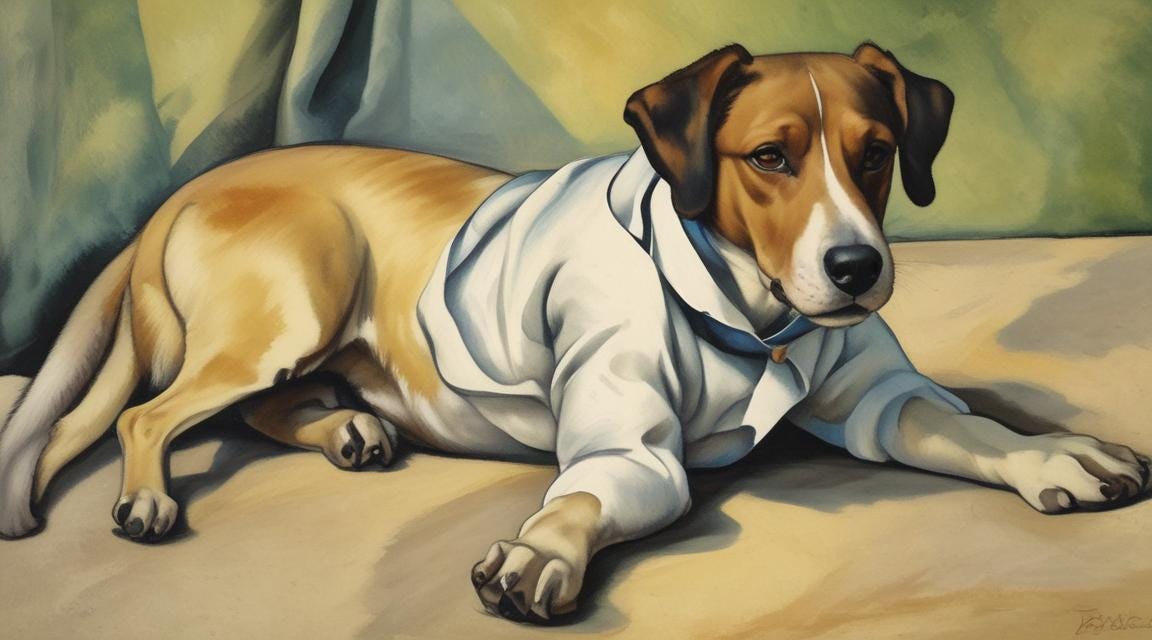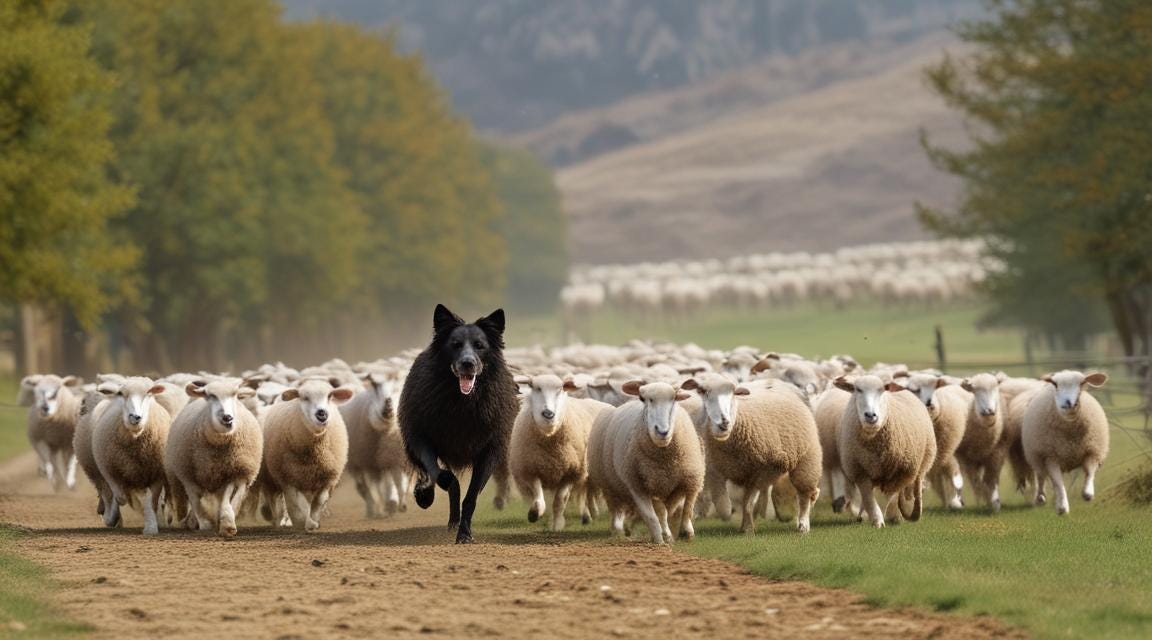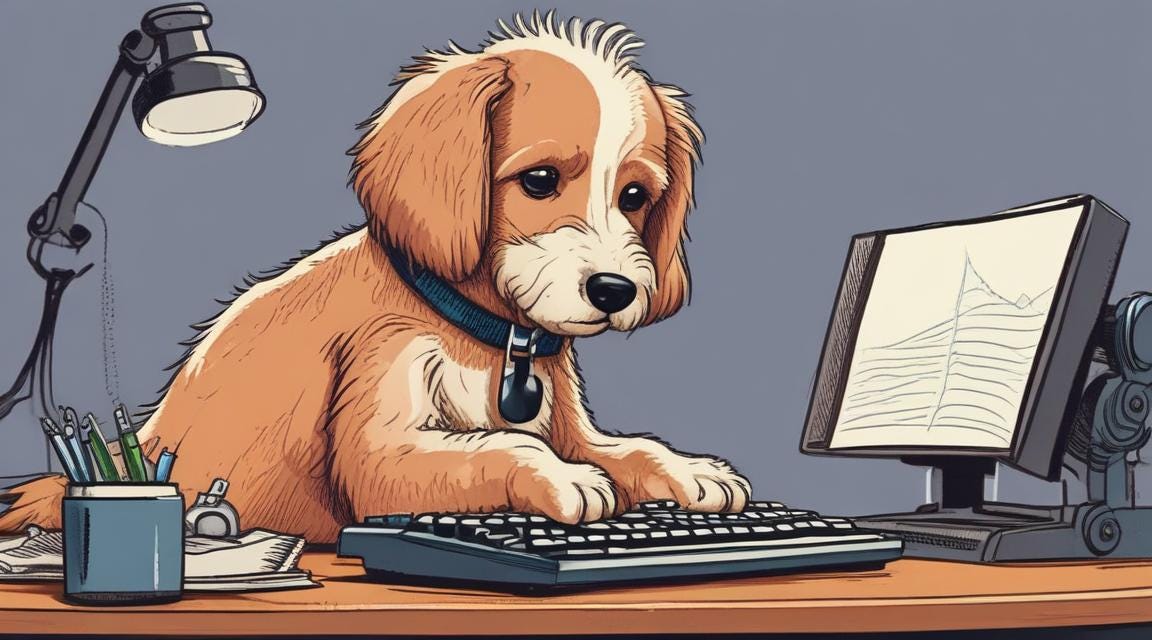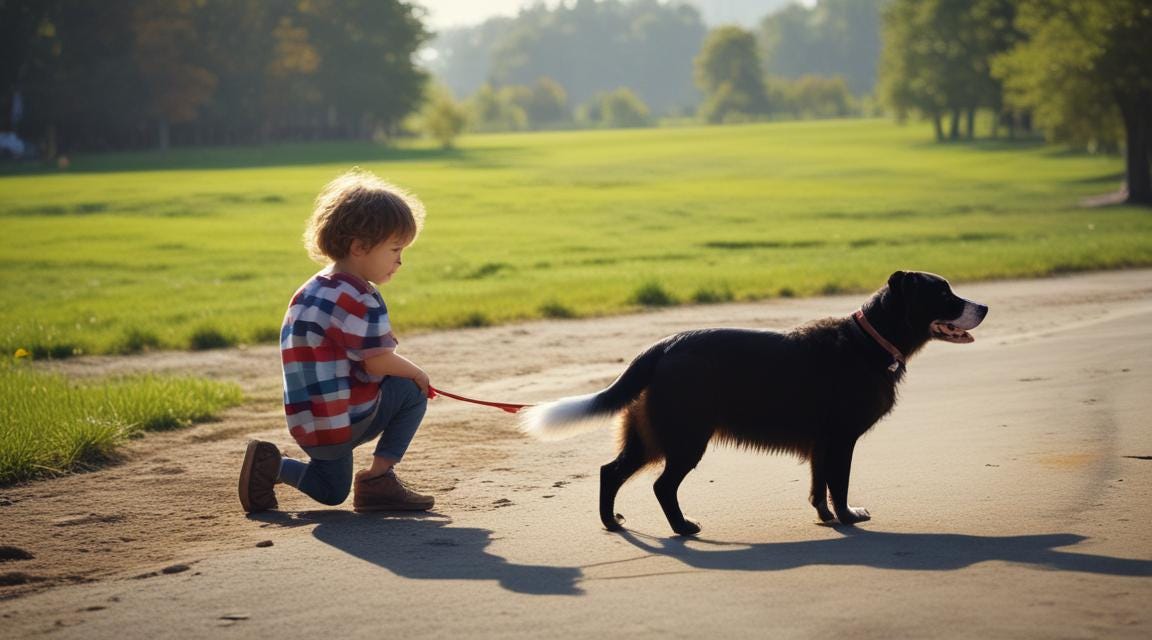There’s a term in the world of Private Equity investing: “Roll up.”
It means that if a particular industry is widely diversified, then very wealthy investors buy up a lot of small companies in the industry and “roll” them into a larger business. This consolidation gives the new owners pricing power and a chance to rapidly shrink overhead costs and drop those savings to a bottom line. After a few years, the Private Equity firms sells the rolled up company to other Private Equity investors at a huge profit. Unhappily, seldom employees or customers are enriched by this financial engineering.
In my business life I have been both a part of the “rolling up” and other times been what I’d call a “rollee”. For sure, it’s better to be a roller than a rollee.
Private Equity discovered the pet veterinary service several years ago and it is rolling it up. So, at this writing we are among pet owners who are feeling the brunt of the so-called pricing power as we are caught up in the world of veterinary services for a golden doodle puppy. Some of you readers may have followed this puppy, J. Dudley, as he opines on puppy life with the loving assistance of his female human, my wife Julie Gammack.
The other day I happened upon an article in The Atlantic, “Why Your Vet Bill Is So High” and I share it with you in its entirety. https://www.theatlantic.com/ideas/archive/2024/04/vet-private-equity-industry/678180/
In it the author reports that Private Equity investors have poured some $60 billion from 2017 through the first half of this year into privately owned veterinary clinics or pet hospitals.
These investments are touted by investment bankers as “low risk, high reward”. As a result, pet owners, mostly of dogs and cats, are experiencing increased costs for what are upselling of treatments and tests for their beloved pets. Sometimes vet bills are so high with prospects of going even higher that some owners have had their furry friends “put down”, a euphemism for a very traumatic family event. Or they undertake another euphemism, “rehoming” which means the owners try to find another owner who can still afford to take care of their pet.
When it came Dudley’s time for neutering (yet another euphemism) we found that one vet charged twice what another vet’s price sheet promised.
A pet owner friend of ours reports vet bills for their 20-year-old cat for the first seven months of this year were nearly $5,000. After realizing it was hopeless and all nine lives were gone, there was an extra $200 charge to euthanize the old pet and yet another $200 to arrange for kitty’s paw print to be set in clay as a remembrance.
Rollups have been a part of the economy for years. Almost all big city newspapers have been rolled up with the “savings” in operating costs from sharp reductions in payroll and centralized printing plants while doing nothing to enhance the quality of content for readers. Ditto with the broadcasting industry. I have an investment banker friend who made a very good living helping roll up the community newspaper industry and when that was pretty much accomplished turned to consolidating funeral homes at a nice profit.
Our Dudley, who has been diagnosed with epilepsy and therefore must be treated regularly with medicine to prevent seizures, has been a patient of vets in six different clinics in three different communities which comes out to a new vet every 60 days for a year-old puppy. And despite making claims and filling out forms, the so-called “pet insurance” we purchased has yet to pay any reimbursement .
Pet ownership ain’t cheap.
None of this takes away from my high regard and appreciation for Dudley’s vets. To a person, they are caring, loving people who got into the profession to love and care for the lives that mean so much for their owners. Those that now work for corporate owners surely sometimes must chaff at “help” from investors who now encourage them to “sell” additional services that may or may not help the pet. As the Atlantic article notes, the Private Equity infusion into the medical industry for humans has not always enhanced the delivery of service nor passed along economies of scale to patients.
Long ago, when I was a kid growing up on a farm in southern Iowa where we had a small dairy herd, I eliminated ever becoming a vet from my career goals list. That was because I’d watch the veterinarian who came by to do artificial insemination as our cows came in heat. It’s a process that required the vet to roll up his sleeves (a different kind of roll up) to get the bull semen in the right place, thus giving literal meaning to the term “animal husbandry”. Once you see it, you can’t unsee it.
As for Dudley and Julie and me, we’re in it for the long term and hopefully we can adjust our spending habits to withstand what is likely coming down as the Big Vet movement (as coined by the Atlantic article) gains momentum.
The pet industry has always been a lucrative market because as I have recently personally come to appreciate, the relationship between puppies and kittens and other pets and their owners is strong and loving. That’s what makes it such as great place for Private Equity firms to park their money.
There are countless examples of what folks are willing to do and spend in the enjoyment of their relationships with their furry friends. I thought I had heard them all until in doing a little homework before writing this column.
Dog owners who have a love of the “herder dogs” (think Border Collies) can rent a real life training experience for their dogs. I ran across a small farm in western Oregon south of Portland where you can rent a small herd of sheep to use to train your dog. Pretty reasonable— $50 a month for five sheep; that sounds like a good deal—only $10 a head for 30 days. The sheep are raised for their wool not lamb chops so it’s not like the sheep have to be doing anything else besides getting a little woolier. If it wasn’t such a long drive to Oregon it might be a real treat for Dudley.
And do not be surprised if J. Dudley the doodle puppy continues to opine on SubStack.
On that subject, I recall a recent vet visit. Dudley was not being cooperative during an exam, threatening to leap off the examination table. It was then that I asked the vet’s assistant who was holding him back: “Do you think maybe he is a little spoiled?”
To which she diplomatically responded: “I can’t really say, but he is the only dog we treat here who has his own blog.”
Richard Gilbert
Editors note:
As a follow up to Richard’s column above, I called Tom Colvin, CEO of the Animal Rescue League of Iowa, to see if the high cost of veterinary care is causing more animals to be relinquished because pet owners cannot afford to take care of them. The short answer:
Yes!
The high cost of care, combined with the lack of affordable housing allowing pets, means more and more families must make the near Impossible decision to re-home their furry family members, and hope the Animal Rescue League can place them in a happy home.
There was a glorious time during Covid quarantine when pets and families were all at home, and there was a big demand for adoptable animals, along with a moratorium on surrenders. Now, the numbers are going back up, well over what they were in 2020-22.
The ARL is doing what they can, offering wellness clinics, vaccinations, spaying and neutering assistance from volunteer veterinarians. But the costs are not in keeping with incoming donations. They can burn through a $20,000 grant in no time, because the need far exceeds the resources available.
I’ve adopted dogs from the ARL in the past, and felt some guilty this year, because Dudley came from a breeder of Golden Doodles (we needed to make sure he wouldn’t grow to exceed the condo weight restriction).
What can we do?
Donate to any local animal shelter. Here’s a link to the ARL of Iowa.
Adopt a pet
Attend or donate something to the ARL auction in April. We will be offering a full scholarship to the Okoboji Writers’ and Songwriters’ Retreat.
When we told Dudley we were working on this story, he suggested we turn on the paid subscription button on his column, and he’d donate that money to ARL of Iowa. Here’s where to find his periodic musings on whatever he’s thinking in the moment.
Dudley hopes this video of him stalking his bone makes you smile, and underscores how hard it must be for someone to give up a pet they’ve grown to love. He doesn’t bark much at all, but some reason, he fixates on these Nyla bones. He’ll ‘bury’ them, if he can.
Julie Gammack












More American greed among big corporations. Americans love their pets, but these costs are making it very difficult. It’s also absolutely infuriating.
This seems like a the same healthcare racket that we humans have to navigate. Poor Dudley.
I finished reading your column and looked up at the TV which was showing a promotion for a channel called DOGust. Apparently it is a channel you can park your dogs in front of to watch programming that keeps them calm when they have to be inside during the summer heat. Brilliant!
That’s what I did with our little guys, but the calming programming was Mr. Rogers Neighborhood and Sesame Street!